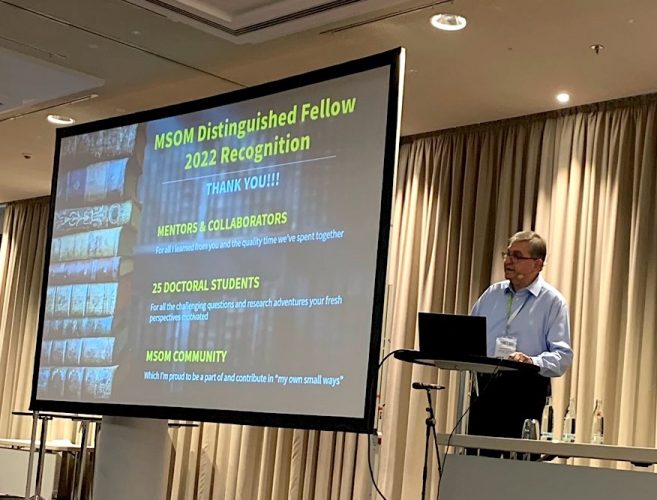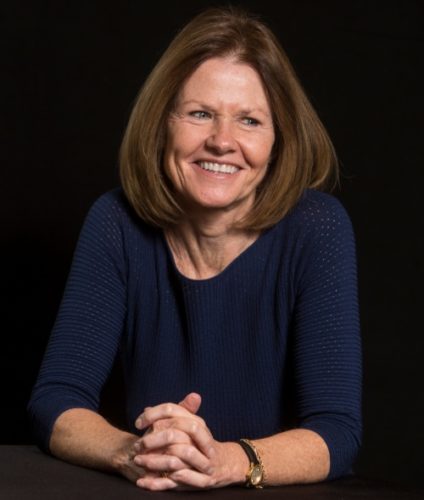Evan Dalton, head of digital marketing for WashU Olin’s Boeing Center for Supply Chain Innovation, wrote this for LinkedIn. It is republished here with permission.
The MSOM Distinguished Fellow Award is widely regarded as the highest honor that can be bestowed upon a research scholar in the field of operations management. This rare distinction, akin to a lifetime achievement award, recognizes outstanding scholarship and research accomplishments throughout one’s career.
This year, the award has been given to Panos Kouvelis, Emerson Distinguished Professor of Supply Chain, Operations, and Technology and director of The Boeing Center for Supply Chain Innovation at WashU Olin Business School. According to the MSOM Society of INFORMS, “The award was created to recognize individuals for significant research accomplishments and exceptional scholarship in the operations management field through sustained research excellence in their activities.”
Kouvelis has had an illustrious career in operations management research thus far, with eight books and more than 135 refereed journal publications. He has been ranked in the top three for operations management research in several categories, including total number of published papers (#3) and publications in Manufacturing & Service Operations Management (#1). His work has also been recognized with a 2016 Fellow of POMS Award and a 2020 published laudatio in Production and Operations Management honoring his career.
MSOM Distinguished Fellows are selected by their professional colleagues via a nomination process. A couple of Kouvelis’ peers had the following to say about his research contributions:
“[Panos’] earlier work was definitely more manufacturing planning and scheduling in nature…but then he has broadened his work to cover global supply chain designs, facility networks, supply contracts and multi-party coordination, and the interface between marketing and manufacturing. This is a very ambitious coverage, but Panos was able to produce very high-quality outputs in all these areas.”
“In supply chain risk management, he has worked on the integration of operational hedges and financial hedges. … In supply chain finance, he has worked on the integration of operational and financial decisions, and especially the role of short-term financing of inventories on the efficiency of supply chains. … he is among the few operations management scholars to integrate trade finance instruments … and other hedging devices.”
“I am deeply humbled and honored by this recognition,” Kouvelis said. “I would like to thank the award committee, my professional friends who nominated me, and the MSOM community for giving me an environment of inspiring ideas, intellectual challenges, research rigor standards, and the venues to disseminate my work. I am proud to be a member of the MSOM community, and to have had the opportunity to contribute to the field of operations management research in my own small ways.”
Pictured above: Kouvelis honored at the MSOM conference in Munich in late June 2022.










